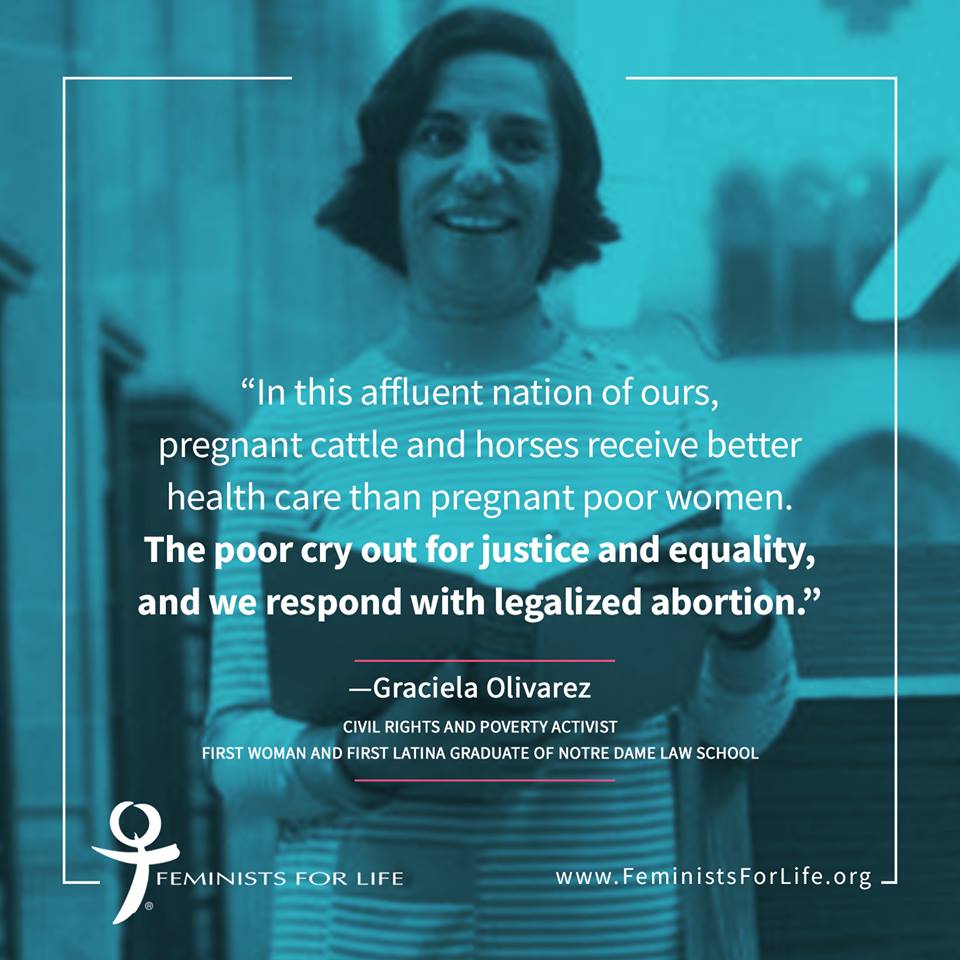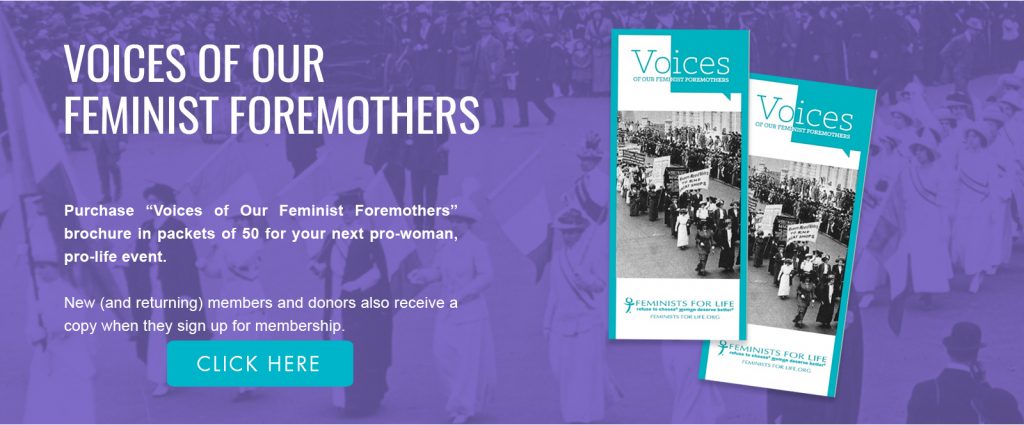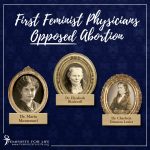
As pro-life feminists well know, today’s “Second Wave” of feminism, which began in the 1960s, has not uniformly promoted greater acceptance of abortion. Consider the dissent of Chicana activist Graciela Olivarez, a high school dropout who became the first woman graduate of Notre Dame Law School.
Along with Feminine Mystique author Betty Friedan and 26 others, Olivarez was a charter member of the National Organization for Women. NOW was founded in 1966 to protest a federal ruling upholding the then-common practice of sex-segregated job ads. NOW’s original charter declared the full humanity of women, “who, like all other people in our society, must have the chance to develop their fullest human potential.” The document decried pressures forcing women to “choose” between work and family, called for
equal partnerships between the sexes, and proclaimed: “Women’s problems are linked to many broader questions of social justice …. Human rights for all are indivisible.”
Abortion advocacy — conspicuously absent from the charter — was not adopted by NOW until 1967, and then only after heated debate. But Olivarez, unlike the organization she helped to found, continued to practice a belief in the indivisibility of all human rights.
Her accomplishments were numerous. She headed the Arizona Office of Economic Opportunity, Food for All, the Mexican American Legal Defense Fund and, as director of the federal Community Services Administration in the late 1970s, was the highest-ranking Hispanic woman in President Carter’s administration. Prior to that, in 1972, she was appointed vice-chair of the President’s Commission on Population and the American Future.
In the commission’s 1972 report — issued the year before Roe v. Wade —she advocated the immediate development and distribution of safer, more effective forms of contraception, for men as well as women who chose to use such methods. Yet she strongly disagreed with the other commissioners— including Sen. Robert Packwood — about legalizing abortion. Her view on this “matter of life and death,” she asserted, “shouldn’t be brushed aside as a denominational hang-up.” She called upon anyone who considered the unborn child “a mass of cells” to witness an abortion procedure, as she had done. She prophetically detailed the harms of making abortion more accessible:
Advocacy by women for legalized abortion on a national scale is so anti-women’s liberation that it flies in the face of what some of us are trying to accomplish through the women’s movement — namely, equality — equality means an equal sharing of responsibilities by and as men and women …. What kind of future do we all have to look forward to if men are excused either morally or legally from their responsibility for participation in the creation of life…?
To talk about the “wanted” and the “unwanted” child smacks too much of bigotry and prejudice. Many of us have experienced the sting of being “unwanted” by certain segments of our society….
I am not impressed or persuaded by those who express concern for the low-income woman who may find herself carrying an unplanned pregnancy and for the future of the unplanned child …because the fact remains that in this affluent nation of ours, pregnant cattle and horses receive better health care than pregnant poor women. The poor cry out for justice and we respond with legalized abortion.
As she predicted over a quarter century ago, the increased availability of abortion has compounded rather than cured the complex evils of sexism, racism, and economic injustice. It is long past the time for taking her prophetic protest to heart, but better late than never.
Mary Krane Derr is co-editor of the anthology Prolife Feminism: Yesterday and Today.








